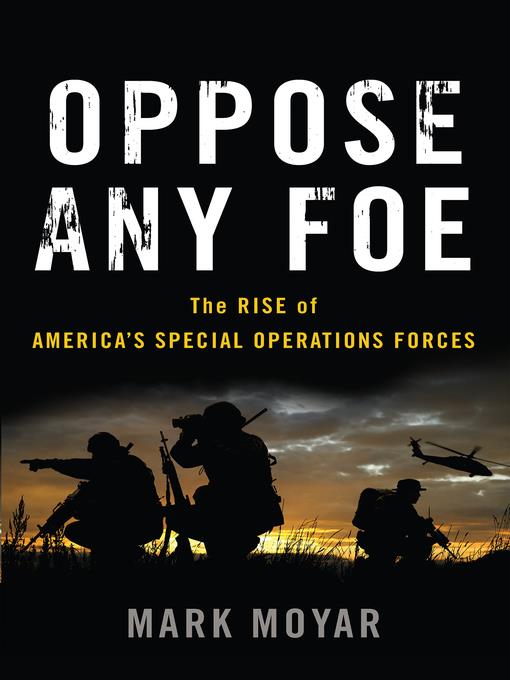
Oppose Any Foe
The Rise of America's Special Operations Forces
- اطلاعات
- نقد و بررسی
- دیدگاه کاربران
نقد و بررسی

March 13, 2017
Seeking to “confer historical understanding” of America’s much-lauded yet poorly understood Special Operations Forces, Moyar (Aid for Elites), director of the Center for Military and Diplomatic History, chronicles 75 years of pyrotechnics while acknowledging the merits of some SOF criticism. Moyar opens by addressing certain persistent problems, including how SOF units suck talent from regular units, receive more training and expensive equipment, and often sit idle between missions (many of which could be accomplished by regular units). He proceeds by outlining the establishment of the various SOF units, beginning with the Army Rangers in 1942. Despite a few accomplishments, SOF units played an insignificant role in defeating the Axis, and hardly improved their standing during the Korean War, Vietnam, and the first Gulf War. Matters shifted significantly after the 9/11 terrorist attacks; units dropped into Afghanistan performed brilliantly in routing the Taliban and participated in the 2003 Iraq invasion. As those wars ground on, SOF prospered, seeming to offer a low-cost, low-casualty means of defeating insurgencies. Moyar maintains that this approach hasn’t worked and delivers the startling conclusion that expanding conventional forces is a better solution. Moyar admires these elite units, and his enthusiastic, warts-and-all approach to discussing Special Forces fireworks will surely raise some eyebrows. Agent: Glen Hartley, Writers’ Representatives.

March 15, 2017
As a consultant for the U.S. Special Operations Command and fellow at the Joint Special Operations University, Moyar (history, Cambridge Univ.; Strategic Failure) characterizes the development of U.S. Special Operations Forces as a coming-of-age story. He maintains that this tale begins with the forces being perceived as "unwanted stepchildren," with occasionally supportive presidents as "stepfathers," but mostly "jealous stepbrothers," in the traditional armed services. Building upon the early use of Army Rangers, Navy SEALs, and British Commandos of World War II, special ops joined with the army's psychological warfare elements in the 1950s Korean War and later expanded during the early 1960s with the enthusiastic support of President John F. Kennedy. Steeped in and enamored by his subject, Moyar takes readers through the ups and downs of the Vietnam War, the failed 1993 Somalia intervention by Delta Force, and the post-9/11 counterinsurgency measures in Iraq and Afghanistan. He includes the Navy SEAL raid that killed Osama bin Laden, which he considers a "tactical success" but with negative strategic consequences that likely outweighed the benefits. VERDICT A worthy account for those curious about modern military history and politics.--Chad Comello, Morton Grove P.L., IL
Copyright 2017 Library Journal, LLC Used with permission.




دیدگاه کاربران